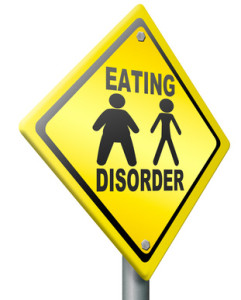 When I was in college (British college, that is—Americans, you’d call it your junior and senior years of high school), I started vomiting from stress. For a few months, I would regularly have to run out of my classes and exams, be sent home early, and take mildly effective anti-nausea tablets.
When I was in college (British college, that is—Americans, you’d call it your junior and senior years of high school), I started vomiting from stress. For a few months, I would regularly have to run out of my classes and exams, be sent home early, and take mildly effective anti-nausea tablets.
I was very lucky.
You see, I had an eating disorder. Yet when the stabbing hunger pains came from vomiting rather than being self-inflicted, I hated them. Rather than being signs that I was ‘succeeding,’ they marked my inability to control my body and diet. On days that I vomited, I started to allow myself to eat more to regain that control. By the time the academic year finished and I stopped vomiting, I was eating a lot better. I don’t know how I would have defeated the eating disorder without vomiting from stress.
Yet I soon realized that I hadn’t actually defeated it. When I lived at home, it was okay. I let my mum cook for me and ate what went on my plate. However, when I left home and went to university, I didn’t know what normal eating was. I panicked when I had to choose how much rice to cook. I tried cooking with friends, yet when they asked me to dish up, I felt my chest tighten with anxiety. How could I decide how much to put on the plates?
So I started only buying food that was in portions. Normal rice? Too difficult. Expensive boil-in-the-bag rice with two portions per bag? Perfect.
If I couldn’t find it in portions, I looked up facts about it and used the kitchen scales for everything. I already knew how many calories most food contains, but how many of my daily calories should come from carbohydrates? What was the perfect number of eggs, low in calories, high in protein, but also high in cholesterol? What was the best fruit to eat, if I wanted my 5-a-day but to keep my sugar intake low?
 I found out the minimum number of calories a sedentary person should consume. Promptly ignoring that I was not sedentary, I set my target calorie intake to that. I loved the fact that I was under-eating again—although I wouldn’t admit it, even to myself.
I found out the minimum number of calories a sedentary person should consume. Promptly ignoring that I was not sedentary, I set my target calorie intake to that. I loved the fact that I was under-eating again—although I wouldn’t admit it, even to myself.
Eventually, I beat the desire to under-eat again, but I was in the same situation as before. How could I eat healthily without measuring what I was eating? At the same time, how could I avoid an obsession with food when I was constantly measuring and analyzing it?
It seems so unfair that, after we’ve finally managed to want to eat, we still can’t. Every magazine, every PSHE (Life Skills) class at school, every documentary on TV tells us how terrible eating disorders are, and how we must start wanting to eat. Yet no one ever told me that I need to do more than want to eat; that I also need to know how.
Yet it is possible. If you’re reading this as someone who is also struggling to understand how to eat after an eating disorder, don’t give up. You’ve come so far. The next steps are hard, but not as hard as everything you’ve already done.
For me, there were four steps:
1. Give up control. Keep it simple and trust your body. For me, this happened when I remembered food pyramids from my secondary school food technology classes. Back when I was eleven, I was taught: lots of grains, lots of fruit and vegetables, some dairy, some protein, and a little fat and sugar. I made a new rule: I had to eat at least one item from each group every day. As for how much, I decided I just had to listen to how hungry I was.
The key was giving up knowing. All the measuring and trying was just making it harder.
2. Accept that we still need help. Give yourself time, and don’t get angry at yourself for not being able to choose meals. Instead, it’s important that we reach out as much as we need. This is not something to be ashamed of. People will not judge us for having had problems eating, or begrudge us help.
Ask a friend, or find a program, that will tell you what to cook. Create a list of simple meals you feel comfortable eating, and when you can’t decide, close your eyes and point. Speak to your school or doctor and find out if they provide a counseling service. If you really feel like you can’t approach a friend, family member, or school (though I encourage you to try), call a helpline when you need support.
Accept that our progress is okay. I can’t promise that food will ever become easy. I still rarely dish up meals, and sometimes I argue with my boyfriend because I can’t decide what’s for dinner. I hope I’ll get better at this in the future—but I have to accept that maybe I won’t, and that’s all right.
Instead, focus on what we are achieving. Remember that we are eating again, and that is the most important thing.
3. Be brave: try to push yourself a little. It’s important for us to accept our progress. This means both our limitations, and how far we’ve come. If you find that tonight you can choose the grains but not the meat, then choose the grains. If you can’t say what to eat, say what you don’t want to eat.
Make your habit one of doing as much as you can.
4. Acknowledge slip-ups—but don’t feel guilty about them. There will be an uncountable number of times when you will fall back into old habits. Rather than lying to yourself or hating yourself for it, admit that it’s happened and that you can’t change it, but that you can do things differently tomorrow.
Accepting who we are is crucial. This is true for both our weight and the fact that we are overcoming an eating disorder. So it’s okay if we still need help with knowing what to eat. The most important thing is that we find a method that enables us to eat healthily—and if we need support to do that, or if we slip up occasionally, it is neither a good or bad thing. It is just who we are right now, and who we are is someone fighting hard against a horrible illness.
Helplines:
B-eat (the U.K.):
www.b-eat.co.uk
0845-634-1414
0845-634-7650 (youth line)
NEDA (the U.S.):
www.nationaleatingdisorders.org
1-800-931-2237
NEDIC (Canada):
http://www.nedic.ca
1-866-633-4220
416-340-4156 (Toronto)
Butterfly (Australia):
http://thebutterflyfoundation.org.au
1-800-33-4673
1-800-ED-HOPE
Eating Disorder Hope (international information):
www.eatingdisorderhope.com/treatment-for-eating-disorders/international
Get Smart, Get Inspired
Whether you are 14, 19, 23 or a parent/mentor Join our mailing list (we only email 1x a week with something inspiring!) here!
What will they find when they Google you?
Would you like to create a positive online presence? Consider writing for us! Apply here!








Leave A Comment